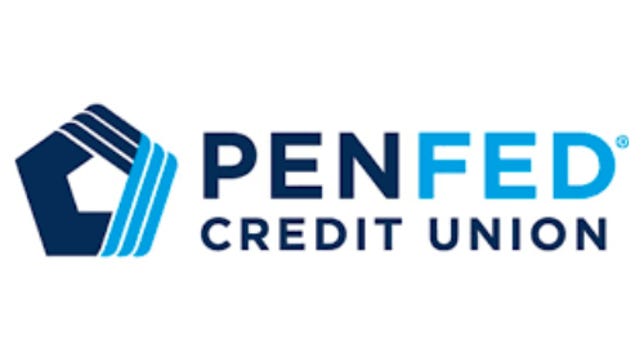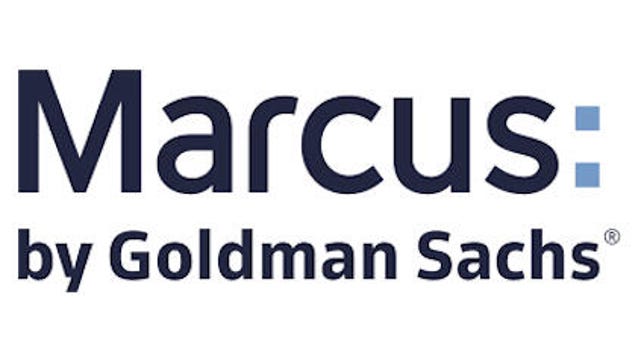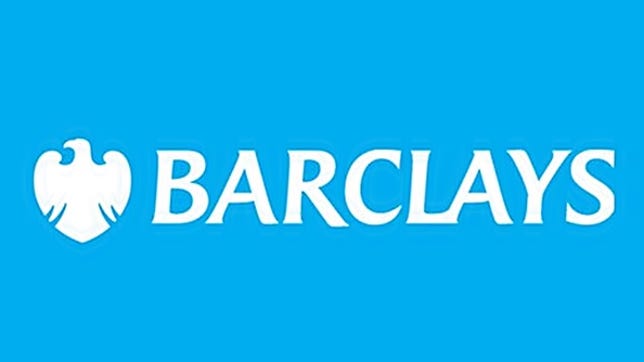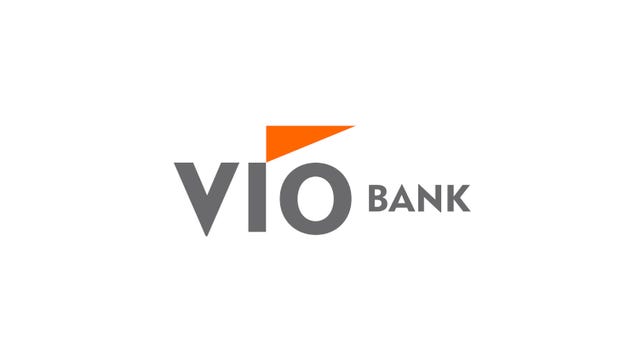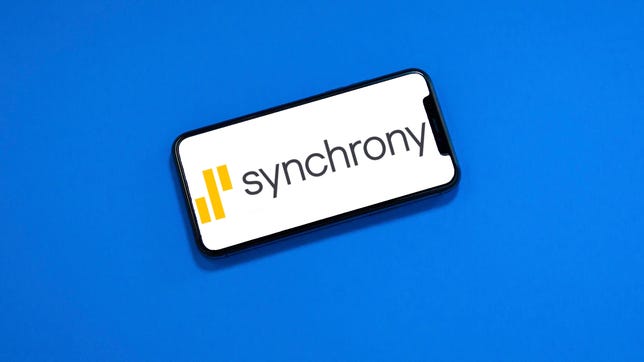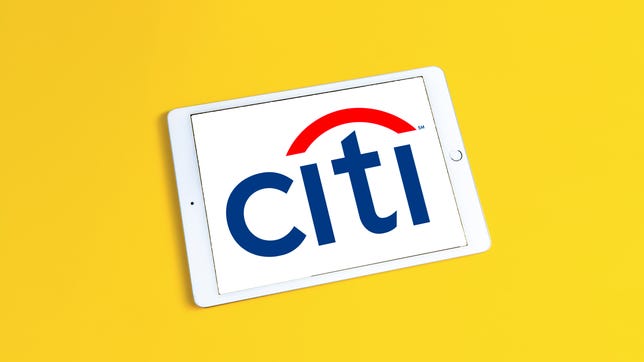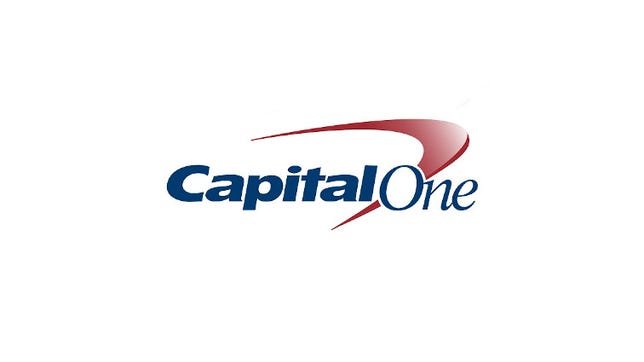A certificate of deposit, or CD, is a type of savings account that earns a fixed rate of interest for a specified period of time, or term. Money deposited into a CD account offers a fixed interest rate that’s generally higher than the national average annual percentage yield for a savings account, currently at 0.23% according to CNET’s sister site, Bankrate. As of February, there are banks offering annual percentage yields, or APYs, of as high as 5.15% for a one-year CD.
CNET’s picks for the best one-year CD rates
| Bank | APY | Minimum deposit |
|---|---|---|
| CFG Bank | 5.15% | $500 |
| PenFed Credit Union | 4.60% | $1,000 |
| Marcus by Goldman Sachs | 4.50% | $500 |
| Barclays | 4.50% | $0 |
| VIO Bank | 4.50% | $500 |
| Synchrony Bank | 4.50% | $0 |
| Citibank | 4.30% | $500 |
| CIBC Bank USA | 4.25% | $1,000 |
| Ally | 4.25% | $0 |
| Capital One | 4.15% | $0 |
Note: Annual percentage yields, or APYs, shown are as of Feb. 23, 2023. CNET’s editorial team updates this information regularly, typically biweekly. APYs may have changed since they were last updated and may vary by region for some products.
More details on the best one-year CD rates
- APY: 4.50%
- Minimum deposit: $500
- Early withdrawal penalty: 90 days simple interest
- About the bank: Marcus by Goldman Sachs is the online banking arm of New York-based multinational investment bank and financial services firm. While this is the seventh-largest bank in the US, all deposits must be electronically transferred using its mobile app because there are no branches or ATMs available.
Marcus by Goldman Sachs
Barclays
- APY: 4.50%
- Minimum deposit: $0
- Early withdrawal penalty: 90 days simple interest
- About the bank: The London-based bank has a US digital operation headquarters and offers an online CD application process. The bank provides six different terms for its traditional CDs with no minimum required to open an account. The account must be funded within 14 business days and a minimum balance, enough to earn one cent of interest, and must be maintained to earn interest. CDs automatically renew once the maturity date has passed.
Vio Bank
- APY: 4.50%
- Minimum deposit: $500
- Early withdrawal penalty: 1% of the amount withdrawn, plus a $25 fee
- About the bank: Vio Bank is the online division of MidFirst bank that offers competitive rates on savings products. Peer-to-peer transactions tools such as Zelle are not compatible with this bank. Access to savings accounts is provided via online and mobile banking services.
Synchrony Bank
- APY: 4.50%
- Minimum deposit: $0
- Early withdrawal penalty: 90 days simple interest at current rate
- About the bank: Synchrony is an online-only bank that takes advantage of limited overhead to offer attractive rates for deposit accounts. Transactions can be handled via its website or mobile app. Synchrony Bank also offers additional CD types like bump-up or no-penalty that provide more flexibility.
Citigroup
- APY: 4.30%
- Minimum deposit: $500
- Early withdrawal penalty: 90 days simple interest
- About the bank: Citibank is the third-largest US bank offering a comprehensive suite of banking products and services to customers. ATMs and branches are plentiful throughout the US, which will appeal to the customers who prefer a traditional banking experience. However, the mobile app is robust and provides digital banking customers with a suite of tools to handle banking needs around the clock.
CIBC
- APY: 4.25%
- Minimum deposit: $1,000
- Early withdrawal penalty: 30 days simple interest
- About the bank: CIBC Bank USA is the US arm of CIBC, a Toronto-based global financial institution founded in 1867. Headquartered in Chicago, CIBC Bank USA offers an Agility Online CD with a tiered APY structure. You will earn a 4.25% APY on CDs below $25,000. CDs worth $25,000 or more earn a 4.30% APY.
Ally
- APY: 4.25%
- Minimum deposit: $0
- Early withdrawal penalty: 60 days simple interest
- About the bank: Ally is another online-only bank that offers a robust set of deposit products, loans, and services. The bank also offers bump-up (CDs that adjust to a higher APY if available) and no-penalty CDs. You can handle all of your banking needs through its mobile app or free via the Allpoint ATM network. There are no fees with any accounts, and 24/7 customer support via phone, chat or email.
- APY: 4.15%
- Minimum deposit: $0
- Early withdrawal penalty: Three months of interest
- About the bank: Capital One, the 10th largest bank in the US, is an online bank with physical locations that you can visit in nine states across the eastern and southern US. It has also expanded the bank branch concept into a coffee shop styled Capital One Cafe with some banking services available in addition to treats, free Wi-Fi and a workspace that is open to the public.
Capital One
What is a one-year CD?
A one-year CD is a timed deposit account that earns interest over a term of one year. If you open a one-year CD in March, you’ll need to leave your money in the account, untouched, as it accrues interest until March 2024. CDs are different than savings accounts in that you can’t withdraw your money during the CD’s term, which in this case is one year. If you do, you’ll be penalized with a fee or interest accrued in the account will be forfeited.
The average APY for a one-year CD is 1.52% according to Bankrate, but it’s important to shop around to find the best rates and features. Upon maturity, your funds, including accrued interest, can be accessed penalty-free. CDs typically have a grace period of seven to 10 days that gives the account holder time to decide if they want to withdraw the funds, put it in another type of CD or let the CD automatically renew.
How do one-year CDs earn money?
While every bank has a proprietary system for determining APYs, most CD accounts are connected to the federal funds rate — the interest rate banks use to lend to each other. The Federal Reserve has continued to increase rates in 2023 — the benchmark rate is up to a range of 4.50% to 4.75% — in a continued effort to counter inflation.
As a result, APYs for deposit accounts such as CDs have also risen. The average yield for CD accounts has only grown during this period, but many banks — particularly those offering online-only services — have passed along that increased value of lending money to their customers with APYs as high as 5.15%.
Depending on the compounding schedule, the frequency with which interest is added to the account balance, the account will increase based on the assigned APY. In exchange for higher yields, your deposit cannot be accessed during a fixed period without incurring penalties. Early withdrawal penalties vary among banks. Several CDs highlighted above impose a penalty of 90 days simple interest if money is withdrawn too soon. The set withdrawal date is known as the age of maturity. CDs offered by banks and credit unions are considered low-risk because their value is insured by either the Federal Deposit Insurance Corporation or National Credit Union Administration for up to $250,000 per person.
As interest rates continue to rise, it’s still a good time to compare the rates you’re earning on any cash parked in your savings account. If the gains from a savings account are being beaten back by inflation, a certificate of deposit can help.
How to choose a one-year CD
A one-year CD is ideal for investors looking for a fixed rate of interest with little to no risk of losing their money. CDs provide an exact interest rate that won’t change in exchange for agreeing to invest your money for a specific period of time. Because they provide guaranteed growth, CDs could be a good option for households saving for future expenses or individuals who want a “rainy day” fund.
If you know that you’ll need a certain amount of money at a specific time in the future, a CD interest calculator can quickly let you know how much you need to invest, and you won’t need to think about it again until the CD matures and you withdraw your money.
Consider the following features when deciding on the best CD:
- Minimum deposit: What is the initial deposit required to open the account?
- Term: How long can you leave the money deposited in a CD account?
- APY: Look for the highest yield available for the terms you’ve selected.
- CD type: CDs are either standard or have special properties, such as a no-penalty CD. No-penalty CDs don’t impose an early withdrawal penalty.
- Withdrawal penalties: What are the early withdrawal penalties associated with the CD you’ve chosen?
- Compound schedules: How often is the interest added to the principal balance thus increasing the account balance? The interest earned by CDs generally compounds daily or monthly.
- Insurance: Confirm that the financial institution participates in the insurance program offered by the FDIC or NCUA which covers accounts for up to $250,000 against loss of bank failure.
Pros and cons of one-year CDs
Pros
- CDs offer consistent, fixed-rate growth.
- According to the FDIC, a one-year CD has a national average savings yield that is nearly quadruple the average annual savings rate of 0.35%. High-yield CDs provide better-earning potential.
- A one-year CD purchased through banks and credit unions is insured by up to $250,000 per person, minimizing the risk of loss of the original principal.
Cons
- The deposit will incur a penalty such as the loss of up to 365 days of interest earned if withdrawn before the CD reaches the maturity date.
- A CD is locked into the interest rate set at the time of purchase which can represent a loss of earning potential if interest rates rise.
- CDs restrict access to money that may be needed in emergencies.
Is a one-year CD better than other investment options?
Determining whether a CD is better than a savings account depends on an individual’s goals and uses for each account. A one-year CD can provide better returns compared to savings accounts, however, access to the deposited funds will be restricted during the term. Savings accounts offer more liquidity, but your money earns less interest and can lose purchasing power more quickly in this era of historically high inflation rates.
Money market accounts may offer higher rates than a traditional savings account with check-writing privileges, but rates are still lower than CDs in most cases. A one-year CD will likely earn a larger APY, however, access to your money without incurring penalties will be limited for an extended period. Each account type offers pros and cons that should be considered when determining which option is best for your needs.
Is a one-year CD right for you?
A one-year CD is ideal for investors looking for a fixed-rate savings option that doesn’t risk any loss to the original principal yet earns higher APYs than traditional savings or money market accounts. Savers must also be willing to leave the deposited funds in place for one year or risk losing all or part of their interest gains to early withdrawal penalties.
CDs work best for:
- Risk-averse savers looking for higher yields than traditional savings accounts.
- Savers who leave all or part of their savings in place for a specific term.
- Those looking for a consistent rate of return.
How to invest in a one-year CD
A one-year CD can be purchased from most retail banks and credit unions. Some online “neobanks” that don’t have banking charters but offer financial services may also offer CDs to customers. Because neobanks lack traditional overhead expenses like physical branches and in-person customer service, they can often provide higher APYs on CDs, passing on savings to customers in the form of higher interest rates.
Most neobanks partner with banks to ensure that the FDIC backs customers’ deposits up to $250,000. It’s important to confirm that any bank you use is covered by FDIC insurance before depositing any money.
To open a one-year CD, complete the application process. This is generally a simple process and is available through a website or mobile app. To complete the process, you’ll need to verify your identity and deposit at least the minimum initial deposit required to open the account. The deposit can take place in person for institutions with physical branches or through electronic transfers.
FAQs
Why should I get a 1-year CD?
A certificate of deposit (CD) is a savings product that offers higher rates of interest than traditional savings or money market accounts in exchange for agreeing not to access the funds for a fixed period before the maturity date. You should purchase a one-year CD if you want to earn a higher rate of interest and can allow the money to remain undisturbed for at least one year.
How are the fees and penalties associated with 1-year CDs?
Fees vary depending on the institution. Some banks advertise no fees. Others charge a fee if the account is closed before a set timeframe has elapsed. Most CDs charge a penalty for withdrawing money before the maturity date has passed. The fee is generally based on a percentage of the interest earned.
Can I lose money purchasing a 1-year CD?
Unless you are purchasing a CD offered by a brokerage account, CDs purchased through a bank or credit union are insured by the FDIC for up to $250,000. Any interest compounded is also covered by the insurance making it a low-risk investment.
What are the fees and penalties associated with a 1-year CD?
Fees vary depending on the institution. Some banks advertise no fees. Others charge a fee if the account is closed before a set timeframe has elapsed. Most CDs charge a penalty for withdrawing money before the maturity date has passed. The fee is generally based on a percentage of the interest earned.
A jumbo CD is a CD account that requires a significantly higher initial deposit — generally $100,000 or more — to open. Jumbo CDs operate like their standard counterparts. There are a variety of terms available for jumbo CDs, they earn a fixed-rate yield and the deposit must remain in place for the duration or incur early withdrawal penalties.
Are 1-year CDs a safe investment?
Unless you are purchasing a brokered CD offered by a brokerage account, CDs purchased through a federally-insured bank or credit union are insured by the FDIC or NCUA for up to $250,000 per person. Any interest earned by the CD is also covered up to insured limits.
Earnings can be reduced by early withdrawal penalties.
How is the interest on a CD compounded?
Interest generally compounds for a CD either daily or monthly. Compound interest is desirable because your money will grow faster. Interest is calculated based on the accumulated interest in addition to the original principal.
Methodology
CNET Reviews CD rates based on the latest APY information from issuer websites. We evaluated CD rates from more than 50 banks, credit unions and financial companies. We selected the CDs with the highest APY for one-year terms from among the organizations we surveyed, and considered rates for shorter terms if one-year terms were identical or unavailable.
Banks surveyed include: Alliant Credit Union, Ally Bank, America First Credit Union, American Express National Bank, Axos Bank, Bank of America, Bank of the West, Bank5 Connect, Barclays, BMO Harris, Bread Savings, BrioDirect, Capital One, CFG Community Bank, Citizens Access, Colorado Federal Savings Bank, Connexus Credit Union, Consumers Credit Union, Discover Bank, First Internet Bank of Indiana, First Tech Federal Credit Union, FNBO Direct, GO2bank, Golden 1 Credit Union, HSBC Bank, Huntington Bank, Lake Michigan Credit Union, LendingClub Bank, Live Oak Bank, M&T Bank, Marcus by Goldman Sachs, Merrick Bank, Nationwide (by Axos), Navy Federal Credit Union, NBKC, OneUnited Bank, Pentagon Federal Credit Union, PNC, Popular Direct, PurePoint Financial, Quontic Bank, Rising Bank, Salem Five Direct, Sallie Mae Bank, Santander Bank, Synchrony Bank, TAB Bank, TD Bank, TIAA Bank, Truist Bank, U.S. Bank, UFB Direct, Union Bank, USAA Bank, Vio Bank, and Wells Fargo.
The editorial content on this page is based solely on objective, independent assessments by our writers and is not influenced by advertising or partnerships. It has not been provided or commissioned by any third party. However, we may receive compensation when you click on links to products or services offered by our partners.



